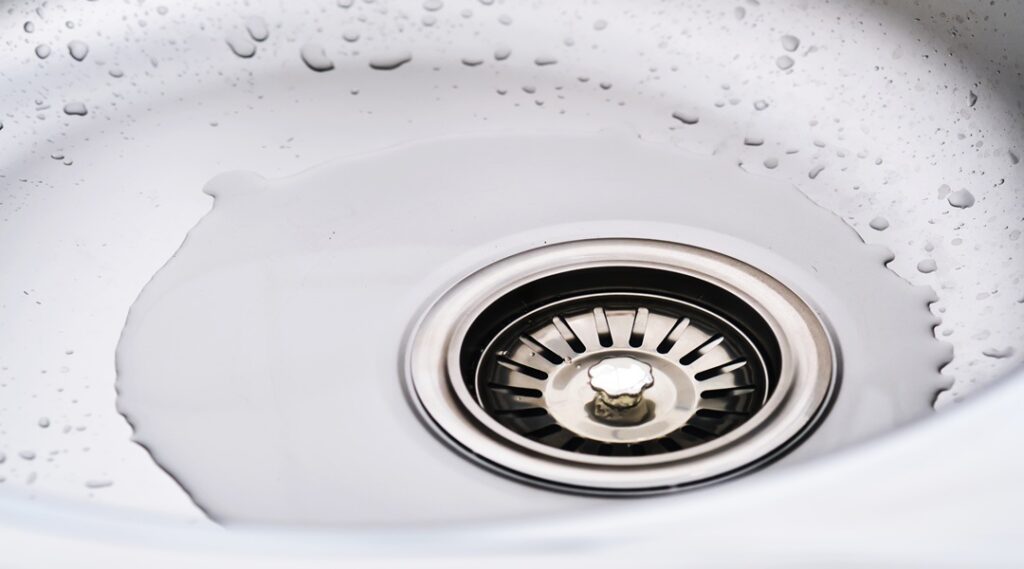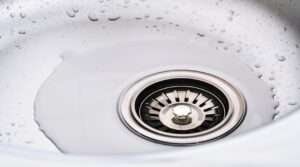Navigating sewer drain smells in your home can be frustrating. Before reaching for heavy-duty chemicals, start with understanding the source of the smell. Sometimes a simple mix of vinegar and hot water does wonders while other times professional help is needed to tackle stubborn odors effectively.
Kitchen drains often get clogged with food particles, leading to unpleasant smells, but odorous issues may have different causes elsewhere in your house. Addressing these nuisances requires specific steps that either homeowners or professionals can implement for fresher air around all types of drains.
Identify the Odor Source
In your home, combatting foul drain odors begins with recognizing the source of the smell. Often, in kitchens, lingering food and grease are culprits; elsewhere, different nuisances arise. Sewage breaks down to emit gases that stink like decay.
These can invade through drains lacking water seals in their traps or those left unused for periods. Mold and mildew add another dimension of mustiness when leaks present near pipes enable their growth. An all-too-common oversight is an improperly installed trap or vent leading to persistent drainage stench.
A straightforward fix lies in maintaining a healthy level within the trap itself. A quartet cycle annually of oil-slicked water safeguards against gas infiltration, and sewer line repair experts might step in if self-maintenance falls short.
DIY Drain Deodorization Methods
Unpleasant drain odors usually stem from bacteria and clogs. Such accumulations can turn into a smelly haven for germs if not tackled promptly.
Yet it’s not just the gunk; sewer gases escaping empty traps or even plumber oversights also contribute to the stench. Tackling these smells at home is feasible with some straightforward methods like bleach usage. A cup mixed in hot water poured down the sink could neutralize bacterial odor after several applications.
Alternatively, modest amounts of boiling water might help, but caution is needed to avoid pipe damage. A mix of vinegar and baking soda creates a reaction that can address blockages as well as eradicate smell-causing microscopic villains lurking within your drains. This DIY approach blends affordability with practicality while efficiently dispelling those foul scents invading your space.
Professional Sewer Line Solutions
To tackle persistent sewer odors, one must take a comprehensive approach. First, ensure your toilet flange is placed correctly; an improperly installed one can weaken the seal of the wax ring and permit noxious gases to seep out for homes that sit empty for extended periods.
Regular plumbing upkeep coupled with strategic venting keeps these unpleasant incidents at bay. Remember: proper waste disposal along with routine inspections go a long way towards preemptively mitigating sewage-related concerns before they escalate into major issues within your home environment.
If your sewer drain emits a foul odor, prompt action can restore freshness to your space. Begin by pouring hot water down the drain to loosen debris. Next, mix equal parts baking soda and vinegar, pour it in, and let it sit for an hour; this neutralizes odors effectively.
For persistent smells or if you suspect deeper issues like blockages or damaged pipes, Beecos Plumbing & Heating offers expertise to tackle such challenges efficiently. Regular cleaning with these natural solutions helps prevent unpleasant scents from returning.













